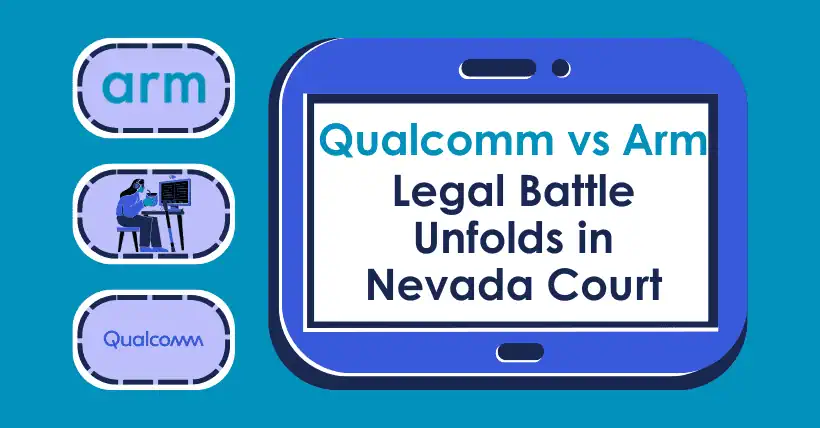For the vast number of digital technology enthusiasts, when it comes to Android smartphones, the first names that come to mind are Qualcomm and MediaTek. When mentioning Qualcomm and MediaTek, one also thinks of Arm, as all mainstream mobile processor companies, including Arm, use Arm’s patent licenses.
In theory, the relationship between Qualcomm and Arm should be very harmonious and close, but in reality, it has not always been the case. There have been many lingering grievances and conflicts between the two companies. In 2021, Qualcomm spent $1.4 billion to acquire Nuvia, and this event became the key trigger that seriously deteriorated the relationship between Qualcomm and Arm.
The reason for this issue is actually quite simple: Nuvia was also a client of Arm and had previously paid patent fees to Arm for certain licenses, which were essential for Nuvia’s core business. After Qualcomm acquired Nuvia, it continued to use these patents for developing products such as the Snapdragon X series processors designed for PCs.
Arm believes Qualcomm’s actions were inappropriate. The patents used by Qualcomm for developing the Snapdragon X series processors, originally owned by Nuvia, were licensed from Arm. Although Qualcomm acquired Nuvia, that does not mean it automatically owns the rights to these patents from Arm.
Arm argues that if Qualcomm wants to continue using these patents for product development, it must obtain Arm’s consent and authorization, including paying additional licensing fees. Using these patents without Arm’s consent or authorization constitutes serious cheating and infringement, leading to an annual revenue loss of $50 million for Arm, which demands that Qualcomm immediately cease the infringement.
On the other hand, Qualcomm disputes Arm’s patent claims, asserting that acquiring Nuvia legally granted it the rights to the patents, and it doesn’t need to seek further authorization from Arm. Qualcomm has taken a firm stance on this matter.
At this point, the conflict between Qualcomm and Arm has become increasingly intense, and their relationship has deteriorated further. A few months ago, Arm even threatened to cancel all patent licenses granted to Qualcomm and filed a lawsuit.
On December 16, the lawsuit officially opened in a Delaware court. In court, Arm reiterated its claims and accused Qualcomm of infringement. It emphasized that allowing Qualcomm to bypass the industry-standard patent licensing model unfairly would cause significant damage to Arm, and the consequences would be severe. This is why Arm must take proactive measures to protect its rights.
Qualcomm responded by accusing Arm of having ulterior motives, using its patent advantages to suppress competitors and disrupt fair competition. In recent years, there has been multiple evidence suggesting that Arm intends to develop various processors based on the Arm architecture, including those for PCs, AI, and enterprise applications, directly competing with companies like Qualcomm.
Arm’s CEO, René Haas, refuted this claim, stating that Arm is indeed exploring various business opportunities, but has no intention of releasing or selling its own processors in the short term, and there is no intention to use its patents to suppress Qualcomm.
Typically, such patent infringement lawsuits are drawn out and it’s difficult to reach a final decision quickly. The judge stated that the jury might begin deliberations as early as Thursday. As for when a final ruling will be made, it remains uncertain. The author will share more updates and breaking news as soon as possible, so please stay tuned.
Related:
- Qualcomm Faces IP Setback as ARM Withdraws License
- Top 3 AI Chip Trends Shaping the Future: Arm’s Insights

Disclaimer:
- This channel does not make any representations or warranties regarding the availability, accuracy, timeliness, effectiveness, or completeness of any information posted. It hereby disclaims any liability or consequences arising from the use of the information.
- This channel is non-commercial and non-profit. The re-posted content does not signify endorsement of its views or responsibility for its authenticity. It does not intend to constitute any other guidance. This channel is not liable for any inaccuracies or errors in the re-posted or published information, directly or indirectly.
- Some data, materials, text, images, etc., used in this channel are sourced from the internet, and all reposts are duly credited to their sources. If you discover any work that infringes on your intellectual property rights or personal legal interests, please contact us, and we will promptly modify or remove it.








